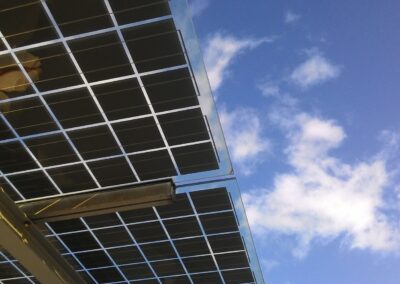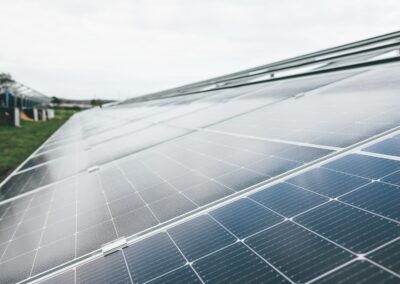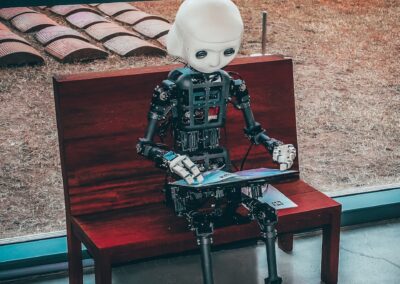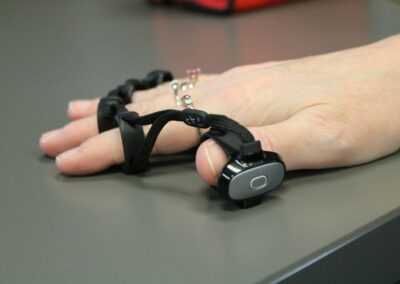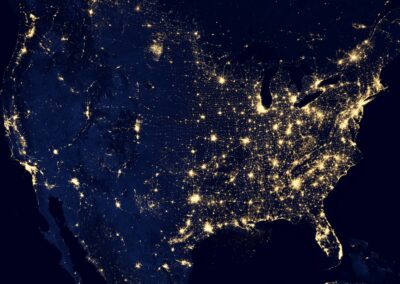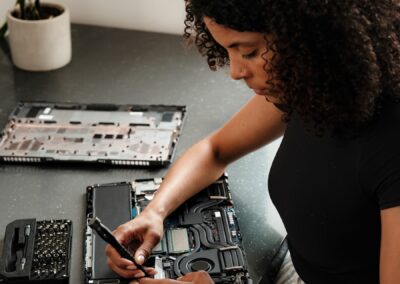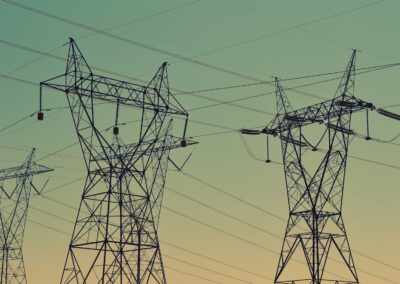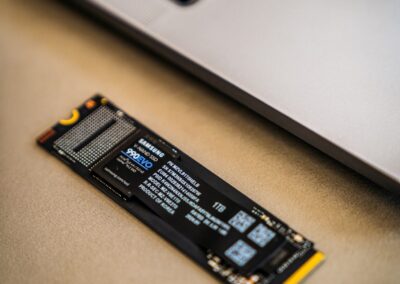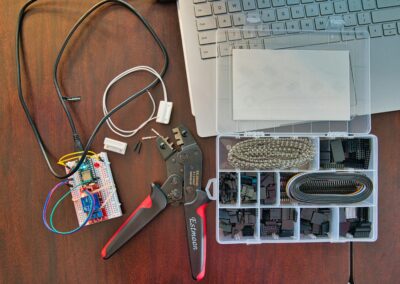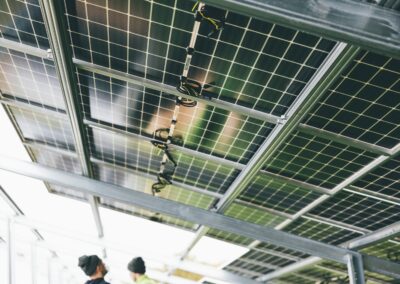Revolutionizing Energy Systems with Digital Twin Technology
Introduction to Digital Twins in Energy Management
The integration of digital twins in energy management is transforming the way energy systems operate, offering unprecedented coordination and integration of various energy sources and technologies. Digital twins, which are dynamic virtual models that accurately replicate physical systems, provide real-time data and predictive analytics to optimize energy usage and distribution. For business executives, mid-level managers, and entrepreneurs in Saudi Arabia, the UAE, and major cities like Riyadh and Dubai, adopting this technology can drive significant advancements in energy efficiency and sustainability.
Digital twins function by continuously collecting data from sensors and IoT devices embedded within energy systems. This data is used to create a real-time digital replica that reflects the current state and performance of the physical system. By simulating different scenarios, digital twins help identify potential issues, optimize operations, and improve decision-making processes. This integration is particularly valuable in the context of renewable energy sources, smart grids, and energy storage solutions.
As the Middle East intensifies its focus on sustainable energy and smart city initiatives, digital twins offer a comprehensive solution for managing complex energy networks. They enable stakeholders to monitor and control energy flows, reduce waste, and enhance the overall efficiency of energy systems, thereby supporting national and regional sustainability goals.
Optimizing Renewable Energy Integration
One of the most significant benefits of digital twins in energy management is their ability to optimize the integration of renewable energy sources. Solar, wind, and other renewable energies are inherently variable, making it challenging to predict and manage their contributions to the grid. Digital twins provide a solution by simulating the performance of renewable energy installations under different conditions, allowing for better forecasting and planning.
In the UAE and Saudi Arabia, where renewable energy projects are rapidly expanding, digital twins can play a crucial role in ensuring the stability and reliability of energy supply. By providing real-time data on energy production and consumption, digital twins help balance the grid and integrate renewable sources more effectively. This not only improves energy efficiency but also reduces the reliance on fossil fuels, contributing to the region’s sustainability targets.
Furthermore, digital twins facilitate the integration of energy storage systems, which are essential for managing the intermittency of renewable energy. By simulating various storage scenarios, digital twins help determine the optimal capacity and deployment of storage solutions, ensuring that excess energy is stored and utilized efficiently. This enhances the resilience and flexibility of the energy system, making it better equipped to handle fluctuations in supply and demand.
Enhancing Smart Grid Performance
The concept of smart grids, which leverage digital technologies to enhance the monitoring and management of electricity networks, is significantly enhanced by digital twins in energy management. Digital twins provide a real-time overview of the entire grid, enabling operators to monitor performance, detect anomalies, and respond to issues proactively. This level of insight is critical for maintaining grid stability and preventing outages.
In cities like Riyadh and Dubai, where the demand for reliable and efficient energy supply is high, smart grids equipped with digital twins can make a substantial impact. By continuously analyzing data from various parts of the grid, digital twins enable predictive maintenance, identifying potential faults before they cause disruptions. This not only reduces downtime but also lowers maintenance costs and extends the lifespan of grid components.
Additionally, digital twins support the implementation of demand response programs, which adjust the load on the grid in response to changes in demand. By simulating different demand scenarios, digital twins help optimize the distribution of energy, ensuring that supply meets demand without overloading the system. This dynamic management of energy flows enhances the overall efficiency and reliability of the smart grid.
Supporting Energy Efficiency and Sustainability
The use of digital twins in energy management also contributes to broader sustainability goals by promoting energy efficiency and reducing carbon emissions. Digital twins enable detailed monitoring of energy consumption patterns, identifying areas where energy is being wasted or used inefficiently. This information allows for targeted interventions to improve energy efficiency, such as optimizing HVAC systems, lighting, and other energy-intensive operations.
For businesses and industries in the Middle East, adopting digital twin technology can lead to significant cost savings and environmental benefits. By continuously monitoring and optimizing energy use, digital twins help reduce operational costs and minimize the carbon footprint of buildings and facilities. This aligns with the region’s commitment to sustainable development and supports the transition to a low-carbon economy.
Moreover, digital twins can facilitate the adoption of green building practices, which are becoming increasingly important in cities like Dubai and Riyadh. By providing real-time data on energy performance, digital twins help ensure that buildings operate at peak efficiency, comply with environmental standards, and achieve sustainability certifications. This not only enhances the value of real estate assets but also contributes to the overall health and well-being of occupants.
Driving Innovation in Energy Management
The potential of digital twins in energy management extends beyond current applications, driving innovation and enabling new business models. As the technology continues to evolve, digital twins will play a key role in advancing smart cities, autonomous energy systems, and the integration of emerging technologies such as blockchain and AI in energy management.
For instance, digital twins can support the implementation of blockchain-based energy trading platforms, which enable peer-to-peer energy transactions and decentralized energy markets. By providing accurate, real-time data on energy production and consumption, digital twins ensure transparency and trust in energy transactions, fostering a more competitive and efficient energy market.
In addition, the integration of AI with digital twins can enhance predictive analytics and decision-making processes. AI algorithms can analyze vast amounts of data generated by digital twins, identifying patterns and trends that inform strategic decisions. This combination of AI and digital twins can lead to smarter, more responsive energy systems that adapt to changing conditions and optimize performance continuously.
Conclusion: The Future of Energy Management
The integration of digital twins in energy management represents a significant leap forward in how energy systems are designed, operated, and maintained. By providing real-time data, predictive analytics, and a comprehensive view of energy performance, digital twins enable more efficient, sustainable, and resilient energy systems.
In rapidly developing regions like Saudi Arabia and the UAE, embracing digital twin technology is essential for achieving energy efficiency and sustainability goals. As the Middle East continues to invest in renewable energy and smart city initiatives, digital twins will play a critical role in shaping the future of energy management.
For business executives, mid-level managers, and entrepreneurs, adopting digital twins offers a strategic advantage. By leveraging this technology, stakeholders can ensure that their energy systems remain efficient, reliable, and sustainable, supporting long-term business success and contributing to the development of smarter, greener cities.
#DigitalTwins #EnergyManagement #RenewableEnergy #SmartGrids #AIEnergy #Blockchain #SustainableEnergy #EnergyEfficiency #UAE #SaudiArabia #Dubai #Riyadh #GenerativeAI #ModernTechnology #BusinessSuccess #Leadership #ProjectManagement




